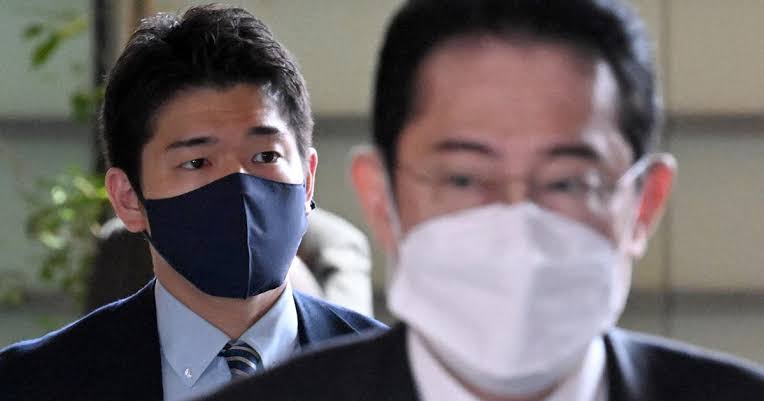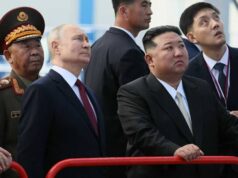Nepotism was taking roots in Japan PM’s office, saps public trust

Prime Minister Fumio Kishida, right, is seen entering the prime minister’s office with his son and executive secretary Shotaro Kishida
Prime Minister Fumio Kishida’s eldest son Shotaro will now have step down as an executive secretary to his father. The younger Kishida had been criticized heavily for holding an end-of-year party for relatives and others at the prime minister’s official residence, and appeared front row center in a red-carpet photo similar to the commemorative group portraits of new Cabinets.
Trust in politics has sunk further in Japan even if we overlook politicians’ mixing their public and private interests. It’s a matter of time that PM would have been forced to take action. Now it has been taken.
The weekly Shukan Bunshun magazine reported the incident, and Prime Minister Kishida had no choice but to confirm the article as true. At first, however, Shotaro was given only a stern warning by his father, who refused opposition party calls to dismiss his son from his post. It must be said that Shotaro’s departure comes very late indeed.
Secretaries to the prime minister are special national public servants. Among them, those in charge of political affairs are usually veterans who have been part of the prime minister’s political office for many years, or those who have come from other government bodies. Which opened Kishida’s appointment of the politically inexperienced Shotaro to speculation that he was prepping the ground for a possible political succession.
The prime minister’s official residence is on the same grounds as the prime minister’s office, home base for the Japanese leader’s public duties. In addition to private living quarters, the prime minister has a public space to entertain guests from Japan and abroad and conducts further official duties. It is heavily guarded and maintained at taxpayer expense, and is currently occupied by Prime Minister Kishida and his son.
The elder Kishida is also being held responsible for Shotaro’s indiscretions. At a meeting of the House of Councillors Budget Committee last week, the prime minister stated that dinner engagements in the residence’s private area were “not a particular problem,” but he showed up personally at Shotaro’s party to greet the guests.
Inviting numerous relatives to a banquet at the official residence is devoid of common sense, and prompted opposition criticism that the Kishidas had privatized what is meant to be a public building.
This is not the only problem involving Shotaro. When he accompanied the prime minister on a visit to Europe in January this year, the Shukan Shincho weekly reported that Shotaro went sightseeing and shopping in an official car. The administration claimed that the visits to famous spots were for public relations photo shoots, but that the photographs had ultimately not been used. It was also stated that the cost of the souvenirs for government ministers and other figures came out of the prime minister’s “pocket money,” making it hard to call it official business.
Public trust in politics is essential for policy implementation. This is especially true at a time when politicians are debating a possible financial burden on the people to strengthen Japan’s defense forces and to address the declining birth rate.
The prime minister must reflect on his actions on this issue, and correct course to prevent being viewed with suspicion by the public.




